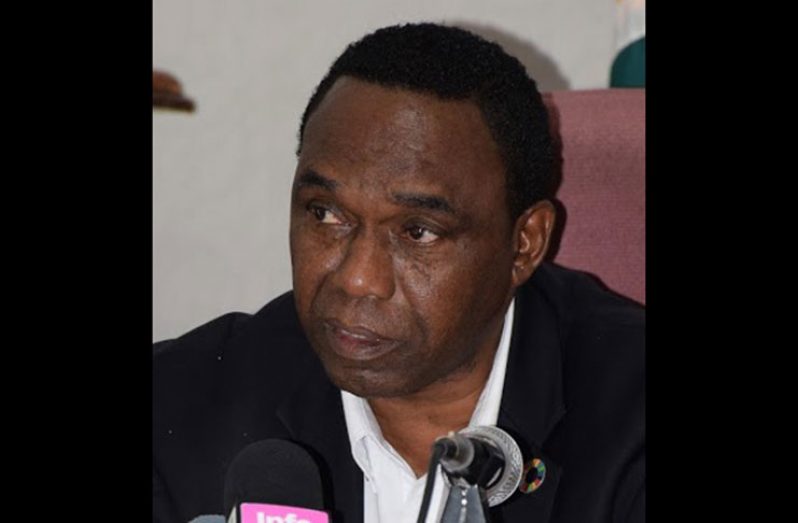THE Food and Agriculture Organisation (FAO) has donated to the University of Guyana (UG) US$30,000 to establish a Food and Nutrition Institute at the Turkeyen Campus and a further US$100,000 to conduct socio-economic and environmental studies.
International studies show that climate change has started to affect all four dimensions of food security: food availability, food accessibility, food utilization and food systems stability. It is expected to have an impact on human health, livelihood assets, food production and distribution channels, as well as changing purchasing power and market flows.
Guyana, although known as the bread basket of the Caribbean, has to be ready to face the adverse effects of climate change, said Country Representative of the FAO, Reuben Robertson during UG’s 10th edition of Turkeyen and Tain talks at the Pegasus Hotel on Thursday evening.
“The university is on the right path for forging right partnerships for resource mobilization, enhancing the quality of its programmes, expanding to new frontiers and research from high-quality technical services,” said Robertson.
The FAO sees UG as an important partner, said Robertson, adding that they have taken a decision to partner with UG to make things happen in Guyana. They intend to start by ensuring that Guyana stays in line with number two of Sustainable Development goals of 2030 which states: “end hunger, achieve food security and improved nutrition and promote sustainable agriculture.”
Robertson believes that the Food and Nutrition Institution will serve as a tool to enhance good governance of food and nutrition in Guyana. In addition to the new institution, the findings of the potential socio-economic and environmental studies will be added to the FAO’s national comprehensive proposals for adaptation to climate change in the agricultural sector.
“We will be using smart partnerships like what we have with UG, to reposition ourselves to respond appropriately to climate change since it poses a threat to global security,” Robertson said. Vice Chancellor of the university, Professor Ivelaw Griffith commended the FAO for their contribution but immediately zoomed in on climate change, echoing the sentiments of former President of the US, Barak Obama who had said “climate change is no longer a far off problem; it is happening here and now.”
The adverse effects of climate change have been evident in Guyana since 2005 when almost the entire country was flooded due to heavy rainfall. According to Griffith, the damages incurred during that period cost the country US$450 million, which is almost 60 per cent of the country’s Gross Domestic Product (GDP).
As time goes by, the UG Vice Chancellor believes that those effects will become worse, so Guyana needs to be prepared for the adverse conditions that it might face as sea level continues to rise due to global warming. He reminded the audience that Presidential Advisor on Petroleum, Dr. Jan Mangal had warned the country that although Guyana’s future is exciting because it will soon be an exporter of petroleum, people need to be aware that no amount of oil money will save them if they do not prepare to deal with climate change.



.jpg)








